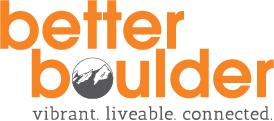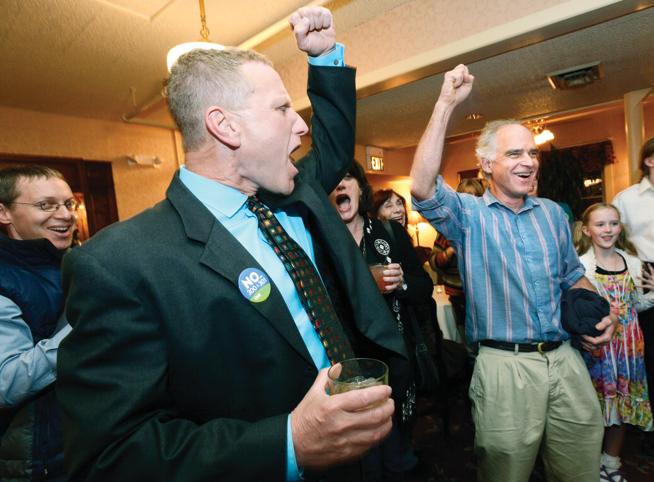Will Toor and John Tayer
In reality, it was more an exclamation of relief than a sense of joy. As many on our One Boulder campaign team said during the election night party, none of us enjoyed saying “No” to initiatives that attracted those who are anxious about the recent influx of new development our town has experienced. We believed that 300 and 301 would do great damage to our community and it was a relief to learn on election night that a vast majority of Boulder voters agreed.
While we and other members of our campaign team were maligned by some as shills for development interests, the coalition that came together under its banner was as broad as any we have seen in Boulder. We were joined by environmental activists, affordable housing advocates, members of the building trades, bicycle proponents, and human service advocates. Hundreds of people worked hard throughout the campaign, contributing their time and money, because they shared the conviction that 300 and 301 would work against Boulder values.
To be clear, though, the One Boulder campaign team wasn’t aligned on a single vision for development. We had a diversity of perspectives, some sympathetic to concerns that we need to do a better job in the design and pacing of future development, while others are comfortable with the direction our city has been taking. The universal theme was a firm belief that there are more constructive ways to address community concerns.
We can’t speak for the entire One Boulder coalition — the motivations and interests of the participants are too diverse. However, a few things are clear from our perspective: There is no room for gloating over this year’s election results, nor scores to settle. We must work collaboratively across the temporary divide with those who supported 300 and 30l if we want to make progress on the complex challenges our community faces.
There are some common concerns we heard from both initiative supporters and opponents throughout the campaign. Many of us worry about how we can accommodate a true diversity of residents amidst skyrocketing housing costs. Others articulated an interest in protecting neighborhood character. And, of course, there are the persistent gripes about traffic and too many cars on the streets.
We may have to agree to disagree on some issues. To those who are fundamentally uncomfortable with multi-family housing, mixed-use development, or projects that incorporate larger buildings, even outside of existing neighborhoods, we acknowledge that we share a difference of opinion that will be difficult to reconcile. For the most part, though, there are creative solutions to many of the common concerns we share.
For example, take the balance of jobs and housing growth that has become a lightning rod for community debate. It’s important to our economy that we maintain enough flexibility to accommodate opportunities like the Google campus and room for home-grown businesses to expand. At the same time, we recognize the pressures on housing and traffic that commercial development creates. We believe there is room for a constructive conversation about giving commercial property owners the ability to redevelop more of their space into housing, or a mix of housing and commercial space, rather than being limited solely to their commercial zoning.
There also are many approaches to improved transportation mobility that are worthy of exploration. For example, we can work to implement the recommendations of the Northwest Mobility Study for routes such as the Diagonal Highway, Arapahoe Avenue and South Boulder Road. We can continue our analysis of a universal Eco-Pass program and make sure new development is designed to create truly livable, pedestrian-friendly neighborhoods. There also are technological solutions, such as electric vehicles and app-enabled ride-sharing, that can help us meet our transportation and climate goals.
It’s time to put this fall’s election battle behind us and use it as a launching pad for the type of rigorous dialogue and creative problem-solving that has traditionally shaped our community. Thank you to everyone — on both sides of the 300 and 301 divide — who worked so passionately over the past few months to test their perspectives at the ballot box. Let’s end the campaign rhetoric and push forward toward a common vision for Boulder’s evolution that elicits a collective “Yes” to an even better future together.
Will Toor is a former Boulder mayor and co-chair of Better Boulder. John Tayer is president and CEO of the Boulder Chamber.

